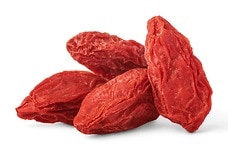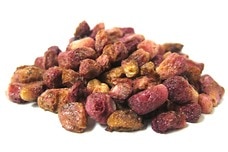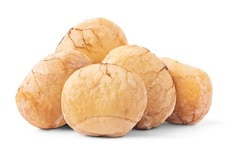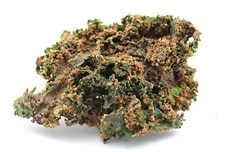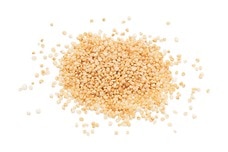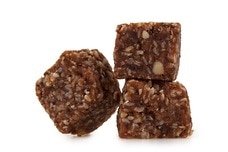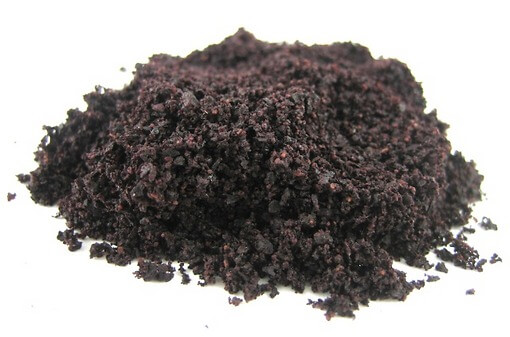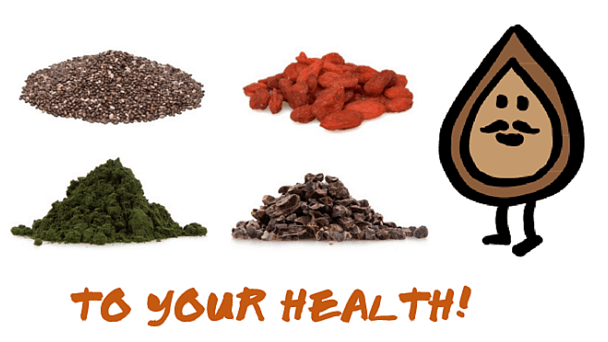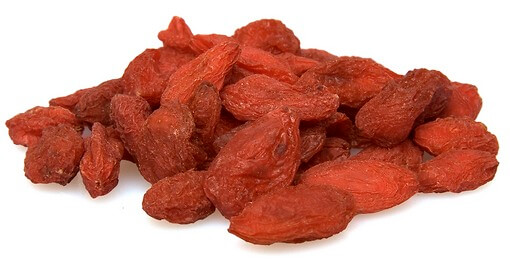Superfoods
Our Registered Dietitian knows that superfoods can help you supercharge your diet! Superfoods are nutrient-rich foods that provide a wide array of health benefits including antioxidants, vitamins, and minerals. There are many superfoods that could be included in this list from blueberries to goji berries to kale.
What is a superfood?
Superfoods are foods that are nutritionally dense and provide a wide array of health benefits that are important for maintaining a balanced diet. Superfoods have high doses of vitamins and minerals which our bodies need to ward off diseases and stay healthy. They can also contain other important nutrients such as antioxidants, healthy fats, fiber, and phytochemicals. While the American Heart Association states that there are no set criteria for classifying a superfood, there are still foods that can be considered super due to their rich nutrient profile. We have compiled a list of some of the most popular superfoods which you can start incorporating into your diet today!
Popular Superfoods
1) Goji berries: Goji berries are bright orange-red berries that are native to China. In Asia, these berries have been consumed for many generations as they were thought to help you live longer. Goji berries are one of the most nutritionally dense berries. They contain all essential amino acids and are loaded with vitamin C, fiber, iron, calcium, zinc, and protein. These nutritional powerhouses also contains anti-inflammatory properties, as well as antibacterial compounds. Goji berries boast powerful antioxidant properties which help boost the immune system. It’s no wonder they have been used in traditional Chinese medicine for centuries.
2) Quinoa: Quinoa comes from Peru, Bolivia and Chile. It’s been grown in the Andes Mountains for millennia as a food staple of the native people. It is often noted as a superfood because of its wide array of essential nutrients. Quinoa contains protein, fiber, and other vitamins and minerals like iron, copper, and vitamin B6. It is also a rich source of magnesium and phosphorus. A 2009 article in the Journal of the Science of Food and Agriculture noted that quinoa is a highly nutritious food due to its exceptional balance of protein, oil, fatty acids, antioxidants, vitamins and minerals.
This rich nutrient profile provides several health benefits for the body. Quinoa’s fiber content improves digestion and is said to help lower cholesterol levels. A study on the effects of a quinoa diet published in the journal Plant Foods for Human Nutrition found that rats reduced their LDL cholesterol by 57 percent when they were fed quinoa after consuming high levels of fructose. Moreover, lowering your LDL can improve heart health. Quinoa also contains omega-3 fatty acids and alpha-linolenic acids which are important for keeping your heart healthy and happy.
3) Spirulina: Spirulina is a type of blue-green algae found in most lakes and ponds. Spirulina is a superfood naturally loaded with vitamins A through E, iron, and antioxidants. From calcium to potassium to zinc, spirulina contains a wide range of minerals. The essential amino acids present in spirulina play a key role in helping our bodies to efficiently use these minerals.
Furthermore, it is considered a complete protein, containing an ideal balance of all 9 essential amino acids. A one-ounce serving of spirulina contains over 30% of the Daily Value (DV) for protein. Spirulina’s protein is 85-95% digestible, a higher percentage than that of even red meat or soy. Spirulina’s antioxidant concentration is four times that of blueberries. Moreover, spirulina has an Oxygen Radical Absorbance Capacity (ORAC) of over 24,000 - ORAC measures the antioxidant concentration of foods. Antioxidants protect our cells from the damaging oxidative effects of free radicals.
4) Chia Seeds: Chia seeds are a great superfood since they are extremely high in omega-3 fatty acids and are loaded with antioxidants, vitamins, minerals, and fiber. Thirty percent of chia seed oil is omega-3 oil. Ten percent of its oil is omega-6 oil. This is the perfect balance of essential fatty acids. Western diets are usually susceptible to a deficiency of omega-3, but a proper omega 3:6 ratio plays an important role by reducing inflammation in our bodies.
Moreover, chia seeds are great for athletes because they are highly hydrophilic, meaning they can absorb large amounts of water. They can hold 10 times their weight in water making them a great enhancer in hydrating our bodies. Furthermore, studies show that eating chia seed slows down how fast our bodies convert carbohydrate calories into simple sugars. This leads scientists to believe that chia seeds may have great benefits for diabetics.
5) Cacao Nibs: Chocolate in its purest form, cacao nibs are a great superfood. Cacao nibs are rich in antioxidants, fiber, iron and magnesium. They contain a wide array of health benefits that are essential for maintaining a healthy lifestyle. Cacao nibs are an excellent source of fiber and iron. A single one-ounce serving of cacao nibs provides 18% of the DV for fiber and 21% of the DV for iron.
Cacao nibs are also chock-full of protective antioxidants and magnesium. In fact, cacao nibs are one of the best food sources of magnesium: an essential mineral involved in over 300 chemical reactions in our body, from nerve function to bone health. Cacao nibs are also said to help improve cognitive function. Cacao nibs have many other health benefits including improving cognitive function, stabilizing blood sugar, improving insulin sensitivity, enhancing your mood, and contributing to overall general health. We definitely suggest adding cacao nibs to your diet!
This page is for informational purposes only and shouldn't replace medical advice.
Try some Superfoods!
Healthy Eating
- Healthy Snacks
- Healthy Highlights
- 5 Uses for Cacao Powder
- 5 Ways to Eat Farro
- 6 Best Gluten-Free Foods
- Alcohol and the Body
- Almond Flour Recipes
- Anti-Aging Superfoods
- Beat the Afternoon Slump
- Benefits of a Plant-Based Diet
- Benefits of Baobab
- Benefits of Cashews
- Benefits of Coconut Oil for Hair
- Benefits of Coconuts
- Benefits of Dates
- Benefits of Fenugreek
- Benefits of Garcinia Cambogia
- Benefits of Goji Berries
- Benefits of Kale Chips
- Benefits of Monk Fruit Sweetener
- Benefits of Peanuts
- Benefits of Pecans
- Benefits of Pistachios
- Benefits of Pumpkin Seeds
- Benefits of Spelt Flour
- Benefits of Steel Cut Oats
- Benefits of Sunflower Seeds
- Benefits of Tiger Nuts
- Benefits of Turmeric
- Benefits of Walnuts
- Benefits of Wheatgrass
- Best Food Fads
- Cacao vs Cocoa
- Caffeine-Free Energy Foods
- Chocolate That's Good for You
- Diet vs. Exercise
- Fat Burning Foods
- Food Myths Debunked
- Foods for Bone Density
- Foods for Colon Health
- Foods for Healthy Hair
- Foods for Healthy Skin
- Foods to Help Sleep
- Foods to Reduce Stress
- Green Tea Benefits
- Healthy Baking Flours
- Heart Healthy Habits
- High Protein Health Risks
- How to Boost Your Metabolism
- How to Lose Weight While Aging
- How to Throw a Vegan BBQ
- Kaniwa vs Quinoa
- Little Health Foods
- Low-Carb: Fad or Friend?
- Making Healthier Desserts
- Mediterranean Diet Meal Plan
- Natural Beauty Products
- Nuts for Weight Loss
- Preparing Vegan Meals
- Preventing Muscle Degeneration
- Rare Superfoods
- Reduce Sugar Intake
- Save Time By Going Vegan
- Smarter Snack Swaps
- Smoothie Ingredients
- Soy Protein vs Whey Protein
- Starting a Plant-Based Diet
- Steel Cut vs Rolled Oats
- Sugar Substitutes
- Vegan Proteins
- Vegan Substitutions for Fall Recipes
- Why Go Vegan
- Healthy Meals
- Healthy Recipes
- Sports Nutrition
- Vitamins, Minerals & Nutrients

